Consensus on ‘effective’ removal of sanctions key to success of Vienna talks, says top Iranian negotiator
Iran’s top negotiator says reaching an agreement on an “effective” and “practical” removal of the illegal sanctions Washington has imposed on Tehran is the key to the success of the ongoing negotiations in Vienna to restore the 2015 agreement.
Almost all participants emphasized the priority of removing the cruel sanctions on Iran, Ali Bagheri Kani told reporters, after a Joint Commission meeting of the Joint Comprehensive Plan of Action (JCPOA), commonly known as the 2015 Iran agreement, in the Austrian capital.
“In today’s meeting, the Islamic Republic of Iran once again stressed that the key to the success and progress of the talks toward reaching an agreement is the effective and practical removal of sanctions,” Bagheri Kani said.
Accordingly, he continued, it was decided that meetings will be held between Iran and the P4+1 group of countries with the issue of removing the anti-Iran sanctions on the agenda.
“This is a promising sign that our opposite sides have accepted to seriously put the issue of sanctions removal on the agenda. If this matter advances, we think that could facilitate a future agreement,” he added.
Iran and the remaining parties to the JCPOA – Russia, China, France, Britain, and Germany – began the eighth round of the Vienna talks on Monday afternoon, with the objective of resuscitating the agreement, which was abandoned by former US president Donald Trump without any legal justification.
During the previous round, the first under President Ebrahim Raeisi, which concluded on December 17, Iran presented new proposals at the negotiating table but later lamented that the US did not do the same through its European allies.
At issue in the Vienna talks have been the scope of the removal of US sanctions, Iran’s verification thereof, the provision of guarantees by the US that it will not leave the deal again, and finally, Tehran’s reversal of its nuclear advancements.
‘Talks to focus on financial, banking sanctions’
Bagheri Kani once again emphasized that regarding the removal of sanctions, Iran is considering two main issues, including the verification of sanctions removal and US guarantees.
The kernel of the two issues has been accepted by the other side, but discussions are needed to determine their mechanisms and frameworks, he said.
Iran’s top negotiator further explained that the sanctions targeting Iran’s financial and banking sections will be on the agenda of the talks in “the next one or two days.”
“The Islamic Republic has stated that if an agreement is reached, the party that violated the deal, the United States, needs to first remove the sanctions, then Iran would verify [the process], and after that it would fulfill its nuclear obligations within the framework of the JCPOA,” he said.
Pointing to the guarantees that Iran seeks, Bagheri Kani explained, “The United States must not violate the deal again or impose new sanctions against the Islamic Republic of Iran which are contrary to the agreement. The rightful and logical demand of the Islamic Republic has been that the other side must offer guarantees.”
Asked how long the new round of the Vienna talks would take, he said it depends on the serious will and readiness of the other side on the removal of the sanctions.
“The more serious and objective this readiness and will is, the less time the talks will take. As long as they do not show this will and lack practical readiness for the removal of sanctions, negotiations may take longer.”
Earlier on Monday, reporters asked Bagheri Kani whether he was optimistic about the negotiations, to which he replied: “If we were not, we would not have come to Vienna.”
Hours before the talks began, Iran’s Foreign Ministry spokesman Saeed Khatibzadeh called on the participants of the talks to come to the negotiating table with the necessary will to reach a good agreement.
“I hope the European trio realizes that it must not waste the time and energy of the Iranian negotiators and those of other [countries],” Khatibzadeh said during a press conference on Monday.
Israel kills 5 more paramedics in southern Lebanon: Health ministry
Iran to launch ‘new, advanced’ centrifuges in response to IAEA resolution: AEOI
Yemen fires hypersonic missile at Israeli airbase
VIDEO | New Delhi chokes under toxic smog as air quality remains at hazardous levels
VIDEO | Press TV's news headlines
VIDEO | ICC's arrest warrant for Netanyahu to worry Western politicians: Former British diplomat
Iranians protest against Israel after Netanyahu ICC warrant
Germany undecided on complying with ICC arrest warrants for Israeli war criminals


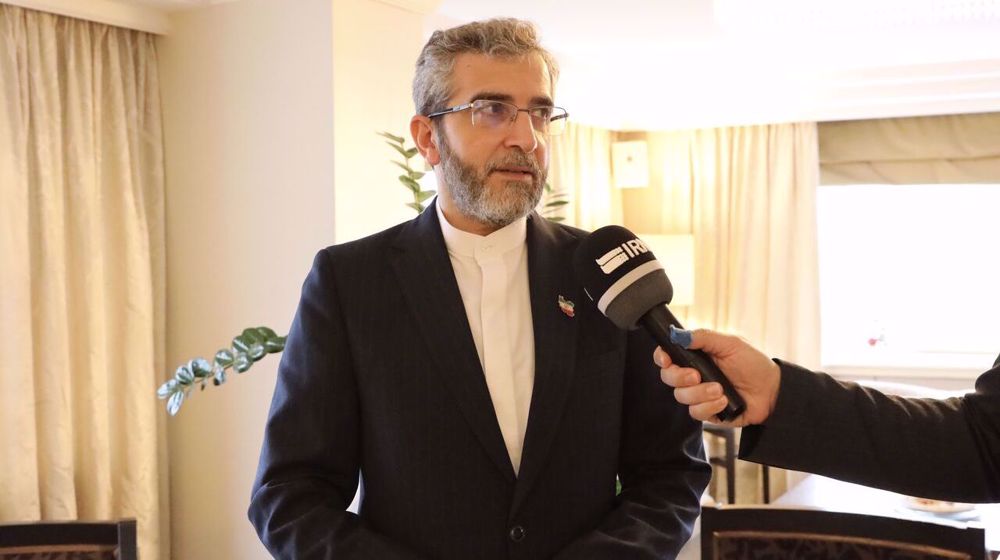
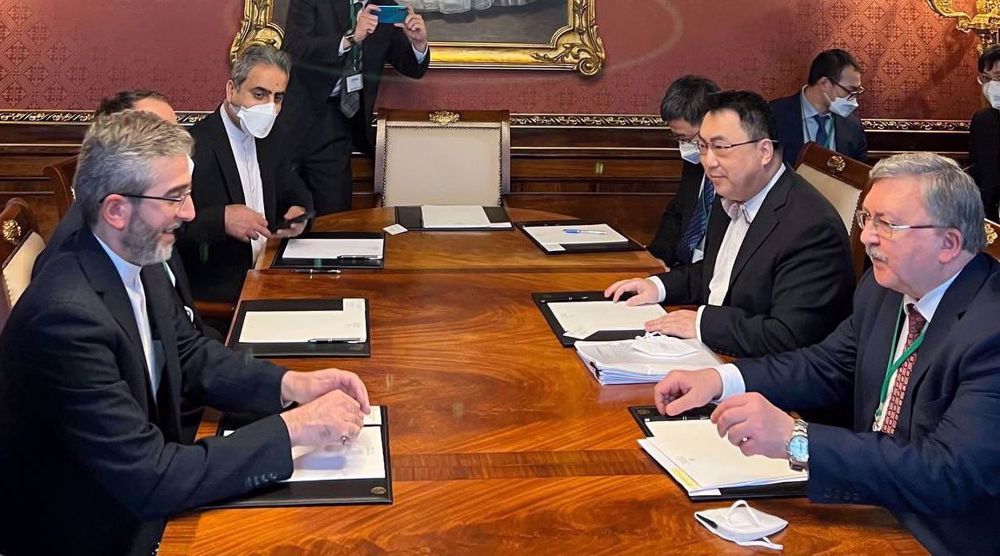
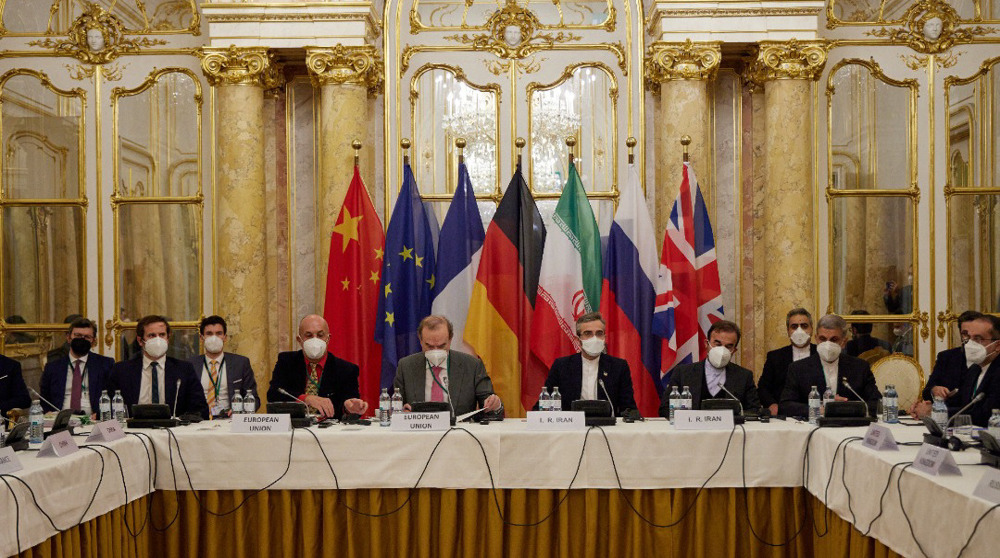
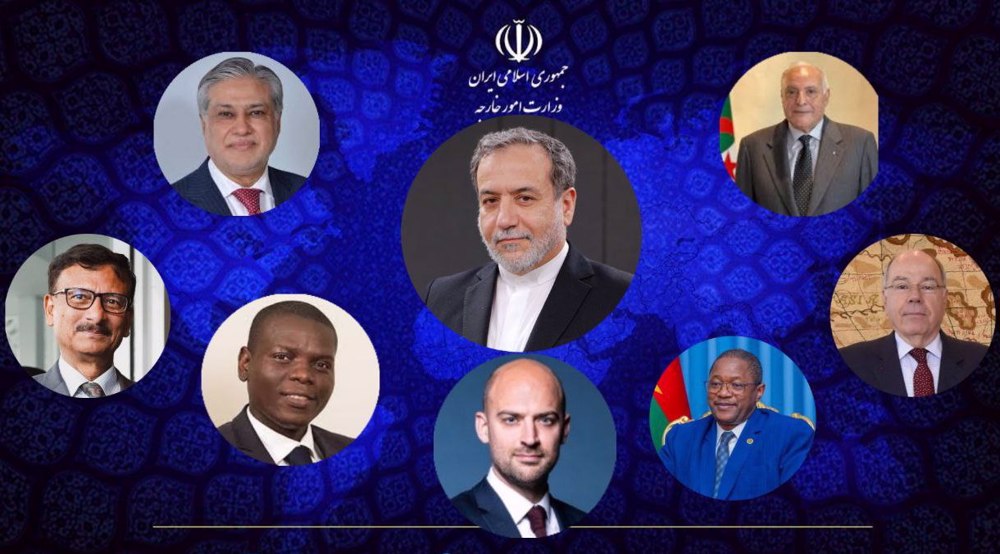
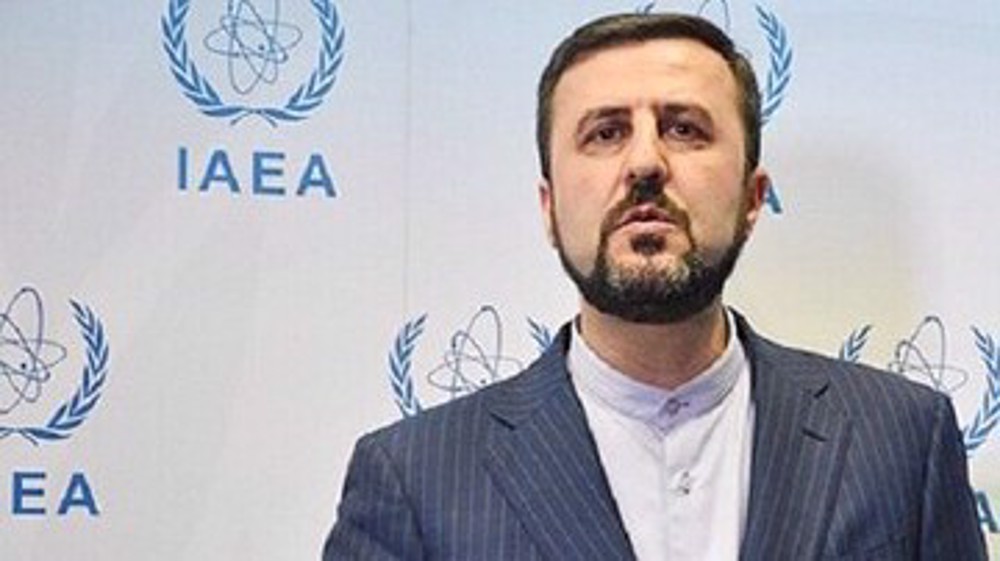
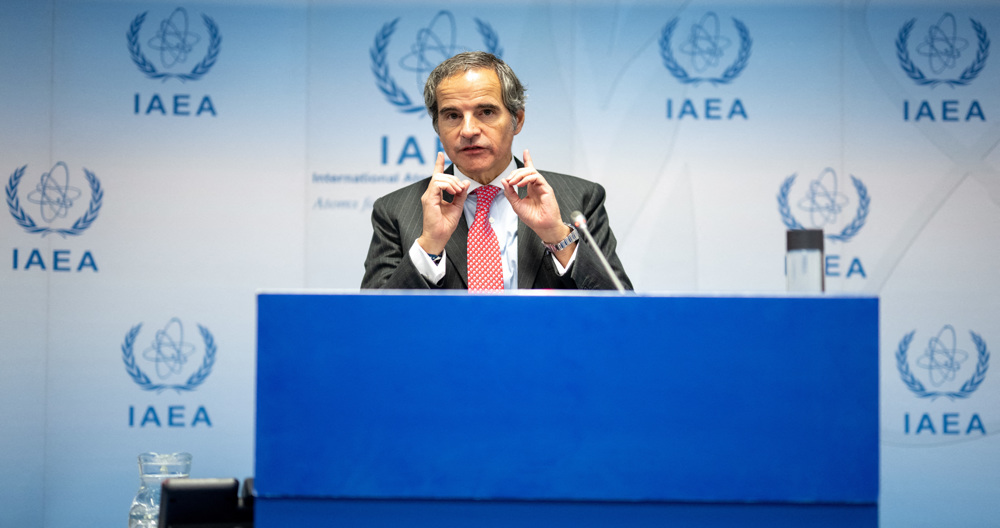



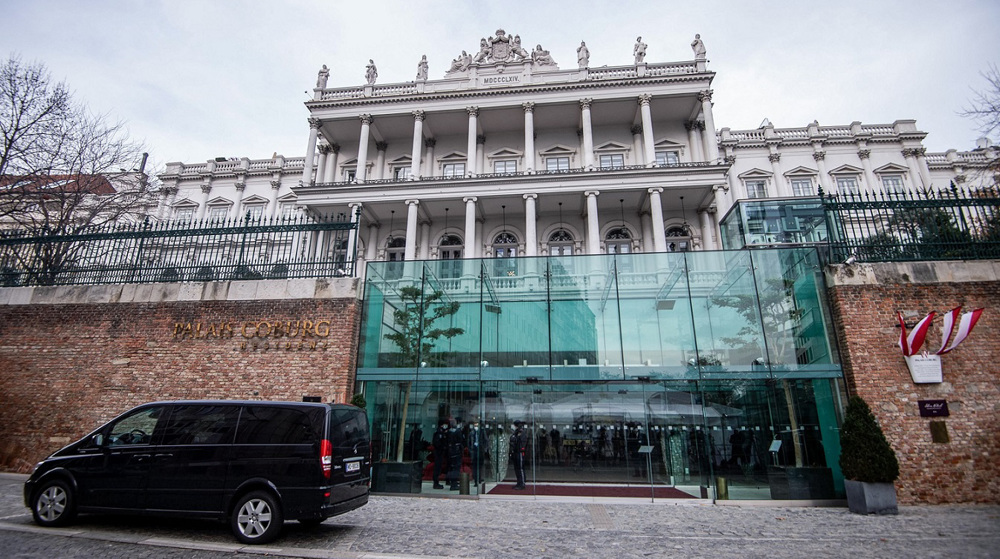
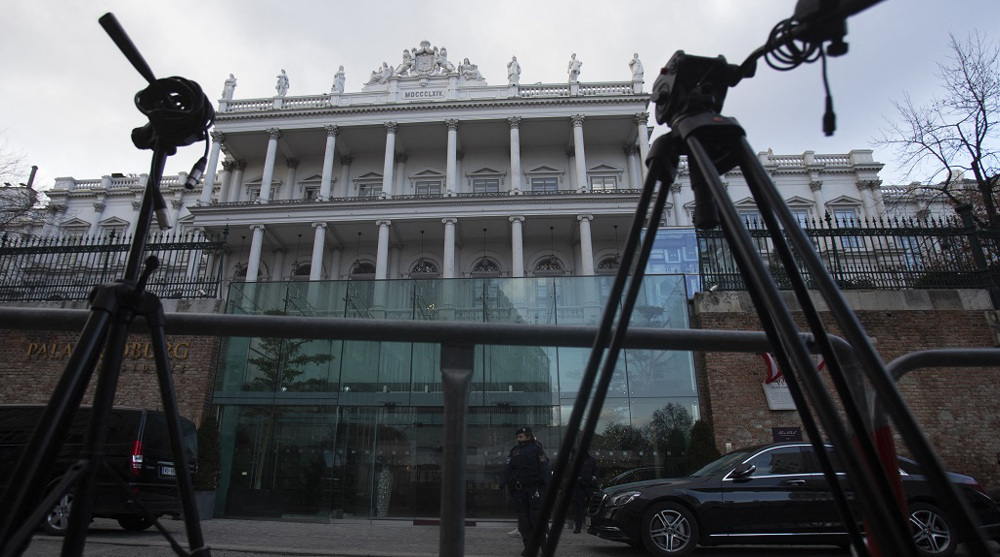
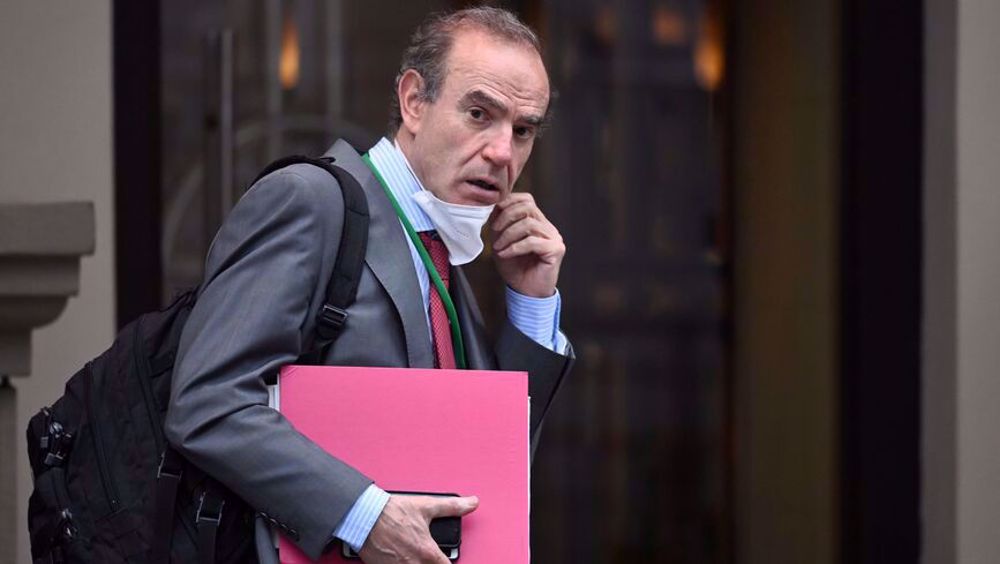
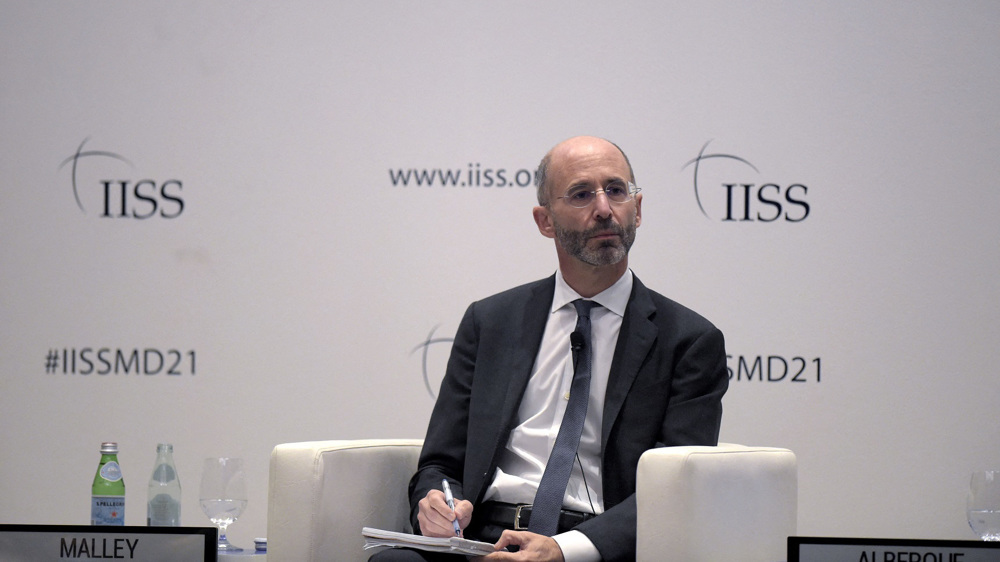

 This makes it easy to access the Press TV website
This makes it easy to access the Press TV website